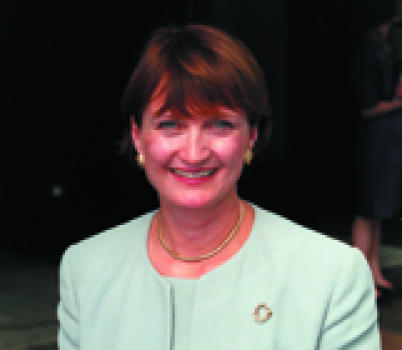The General Practitioners Committee opposes the suggestion of the select committee on public administration that GPs’ powers to remove patients from their lists should be qualified by changing their terms of service.
In their response to the health service ombudsman’s annual report the MPs said that GPs should give reasons to the health authority for removing a patient from their lists and that the authority would have to approve the removal (15 May, p 1309). At present there is no contractual obligation to give reasons, but the GPC agrees that it is good practice and common courtesy to give a reason. In its 1996 guidance on removing patients the committee says that “when trust has irretrievably broken down it is in the patient’s interest to find a new GP.”
The GPC believes that the select committee’s recommendation that patients should have a right of appeal if they thought that they had been wrongly removed would be counterproductive.
The ombudsman’s report also deals with complaints in primary care, and the GPC emphasised that when GPs faced complaints they should be considered innocent until proved guilty. The medical defence organisations and the local medical committee secretaries were crucial in advising doctors in difficulties, but they could act only if the GP asked for help.
The government has not yet said whether it will accept the select committee’s recommendations, but the NHS Executive has proposed a study into the reasons for patient deregistration and the scale of it. The GPC has agreed to take part in the study.
Clinical governance needs time and money
Clinical governance needs time and money to improve standards of care, a report from the King’s Fund says.
In Experience, Evidence and Everyday Practice the fund shows that guidance from the National Institute for Clinical Excellence will be translated into benefits for patients if NHS trusts and primary care groups (PCGs) develop methods of translating evidence about effective health care into everyday practice. Trusts and PCGs will have to decide the priorities for improved care, and how improvements will be achieved and the results monitored.
The report shows how the King’s Fund Promoting Action on Clinical Effectiveness (PACE) programme developed methods of putting evidence into practice in 16 local projects. For example, in south London, rehabilitation services for people leaving hospital with cardiac problems were improved after patients said that their main concerns were surviving their first few months outside hospital. This led to the appointment of a cardiac care nurse to visit patients at home and to support local GPs and practice nurses to provide better care.
Experience, Evidence and Everyday Practice is available from the King’s Fund bookshop on 0171 307 2591, price £12.95.
GPs given guidance over millennium planning
The General Practitioners Committee is pressing the UK government for additional resources to support NHS services over the millennium, and has made the case for a substantial patient education campaign.
The guidance points out that 12 day periods of relatively abnormal service provision occur over most Christmas and New Year holidays, although this year more people are likely to be away from home and there may be a disruption of utilities because of the millennium bug. Hospital doctors have already voiced their concern (22 May, p 1425).
The GPC urges local medical committees, cooperatives, deputising services, primary care groups and their equivalent in Wales and Scotland, and GP practices to work with health authorities and boards and each other in local winter planning groups.
GPs will need to ensure that patients are aware of how services will be provided and to encourage them to use their services appropriately and to use self medication for minor ailments. Pamplets and posters from the Doctor Patient Partnership will be available. Primary care groups should identify people at risk of health or social support breakdown and ensure that they are offered appropriate support.
Dr Jonathan Reggler, a GP in Buckinghamshire, warned that GPs must be advised to stick to their terms of service and provide cover. Last year, he said that there was criticism from some accident and emergency departments and specialists that they could not contact GPs.
BMA NOTICES
BMA council election
A casual vacancy has occurred on the council of the association for a representative of hospital doctors in the training grades and general practice registrars in Scotland for the remainder of the sessions 1998-9 and 1999-2000.
Nominations are sought for candidates to fill this vacancy. Candidates must be current members of the BMA and nominations should be made on forms that are available from BMA House in London, the BMA’s office in Edinburgh, and from secretaries of BMA divisions in Scotland. Each nomination must be signed by the candidate, a proposer, and seconder, all of whom must be hospital doctors in the training grades or general practice registrars in active practice in Scotland. The BMA membership number of all three persons must be quoted on the nomination form, which should be returned to the secretary at BMA House, Tavistock Square, London WC1H 9JP, no later than noon on Monday 7 June 1999. Ballot papers will be issued, if the seat is contested, on Monday 21 June 1999 to all ordinary members in Scotland for return to Electoral Reform Ballot Services by noon on Friday 9 July 1999.
E M Armstrong
Secretary
Figure.

PA NEWS
Ms Tessa Jowell, the minister of state for public health, launched a new report by the Men’s Health Forum this week. Men’s Health—a Public Health Review shows that crime, unemployment, and educational underachievement impact more on men than women and it sets out the social and medical issues which need to be addressed. The forum wants the government, which is due to publish its white paper on public health next month, to move men’s health up stage


